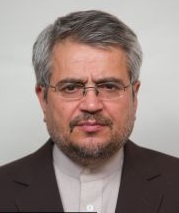Europe, China and Russia Respond to Trump Ultimatum
On January 12, President Trump waived sanctions on Iran for a third time, as required every 120 days by law under the nuclear deal. But he only did so "in order to secure our European allies’ agreement to fix the terrible flaws of the Iran nuclear deal,” he said.

 On January 12, the Trump Administration waived sanctions on Iran for another four months as part of the nuclear deal but took an increasingly hard stance on Tehran’s human rights violations and its controversial missile program. The decision follows widespread protests in Iran over economic hardships in which more than 3,000 were arrested and at least 22 were killed.
On January 12, the Trump Administration waived sanctions on Iran for another four months as part of the nuclear deal but took an increasingly hard stance on Tehran’s human rights violations and its controversial missile program. The decision follows widespread protests in Iran over economic hardships in which more than 3,000 were arrested and at least 22 were killed. On January 3, Iran charged the United States with "grotesque" interference in its internal affairs in a letter to the United Nations. The accusations came after the United States openly supported anti-government demonstrations in major cities, including Tehran, Masshad, Qom, and Hamadan. "Such respect for the people of Iran as they try to take back their corrupt government.
On January 3, Iran charged the United States with "grotesque" interference in its internal affairs in a letter to the United Nations. The accusations came after the United States openly supported anti-government demonstrations in major cities, including Tehran, Masshad, Qom, and Hamadan. "Such respect for the people of Iran as they try to take back their corrupt government.